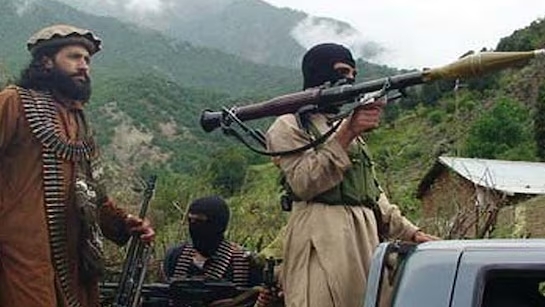In recent years, Afghanistan has become a stronghold for international terrorist organizations, a development that has far-reaching implications for regional and global security. Since the Afghan interim government assumed power, groups like the Tehrik-i-Taliban Pakistan (TTP), Al-Qaeda, ISIS-K, and ISKP have gained significant footholds, exploiting Afghan soil for operational and logistical purposes.
The refusal of the interim Afghan government to take decisive action against these organizations has not only destabilized the region but has also led to mounting tensions with neighboring countries like Pakistan and Iran.
Pakistan has repeatedly provided irrefutable evidence of the presence and activities of terrorist networks in Afghanistan. High-profile incidents include intercepted communications from July 2024, where Khawarij leader Noor Wali directed operatives to target Pakistani schools, hospitals, and government facilities.
Additionally, confessions from captured terrorists, such as suicide bomber Roohullah in September 2024, and the neutralization of eight militants from Afghanistan’s Paktika province in North Waziristan, further expose the alarming nexus between Afghan soil and global terrorism.
These incidents reveal the direct involvement of the Afghan interim government in facilitating and sheltering these groups. Evidence such as special permits issued by Afghan authorities for terrorist leaders like Mufti Muzahim, and the use of U.S.-supplied weapons in terrorist operations, further corroborate these claims.
Despite mounting proof, the Afghan government continues to deny any responsibility, instead resorting to baseless accusations against Pakistan.
The United Nations has also acknowledged the growing terrorist threat emanating from Afghanistan. A recent report revealed operational and logistical support being provided to the TTP by networks like Al-Qaeda, with an estimated 6,000-6,500 TTP fighters currently operating in Afghanistan.
Similarly, Russian Foreign Minister Sergey Lavrov has confirmed the presence of well-equipped terrorist factions, including Al-Qaeda and ISIS affiliates, actively functioning within Afghan borders.
Iran has echoed Pakistan’s concerns, citing cross-border terrorism as a critical security threat. In response, Iran has initiated the sealing of its border with Afghanistan, citing incidents such as the Kerman bombings, where attackers reportedly originated from Afghan territory.
Despite these regional efforts to highlight the threat, the Afghan interim government persists in its support for these groups, exacerbating tensions and jeopardizing peace.
Pakistan, as a responsible state, has consistently worked towards improving relations with Afghanistan. It has sheltered over 4 million Afghan refugees and provided unwavering support during Afghanistan’s difficult times.
However, the Afghan government’s continued facilitation of terrorist activities, coupled with its unwillingness to address these issues, poses a severe threat not only to Pakistan but to global peace and stability.
The international community must recognize the gravity of the situation and hold the Afghan government accountable for its actions. Without decisive measures, Afghanistan’s role as a haven for terrorism will continue to destabilize the region, undermining efforts for peace and security worldwide.
The time has come for collective global action to address this growing threat and ensure accountability for those enabling violence and chaos.


